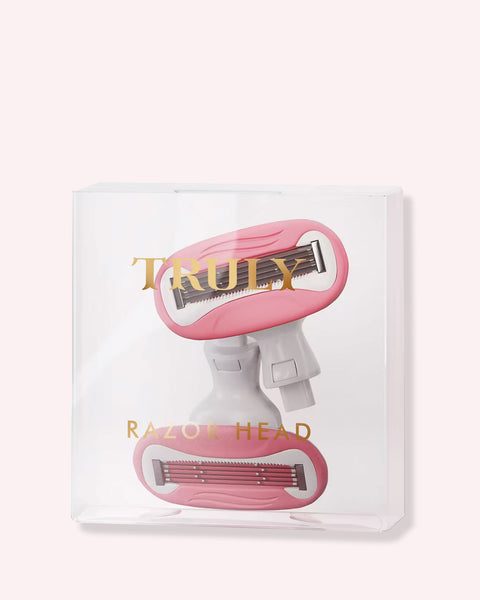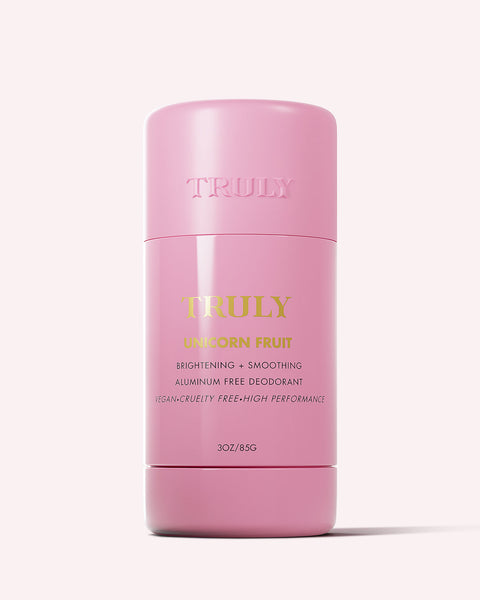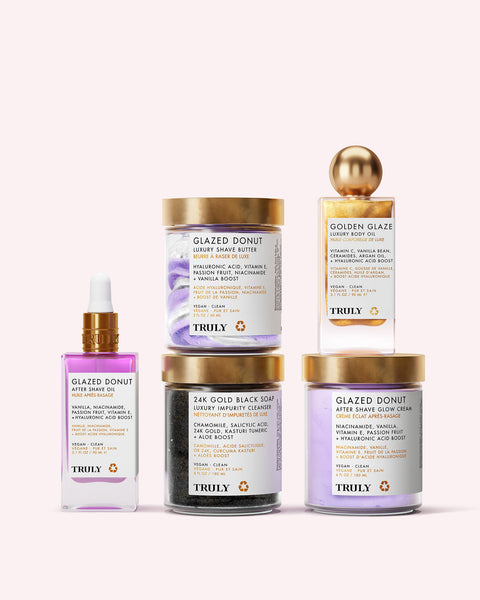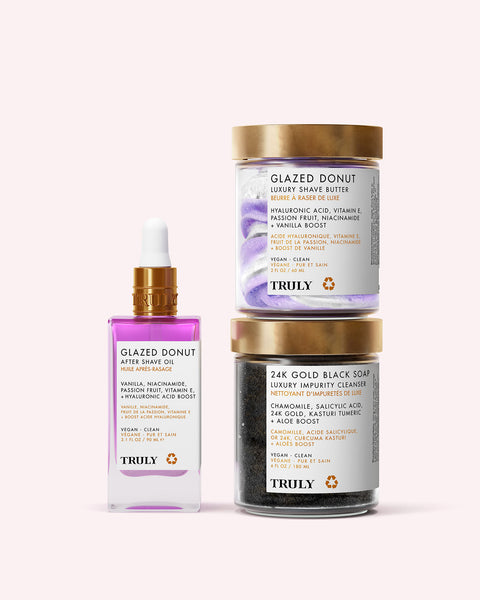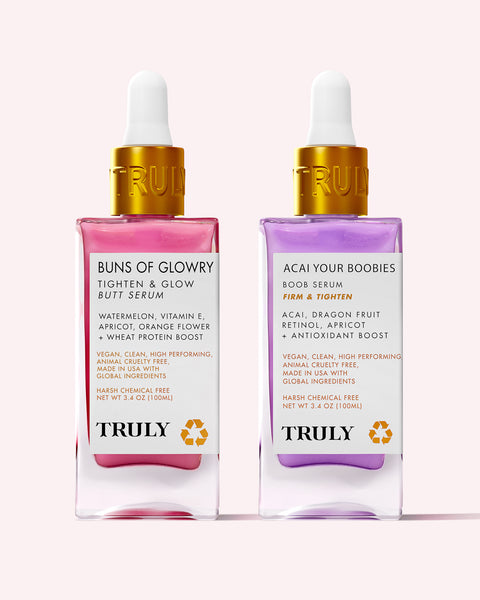Hormonal Acne FAQs: Your Questions, Answered
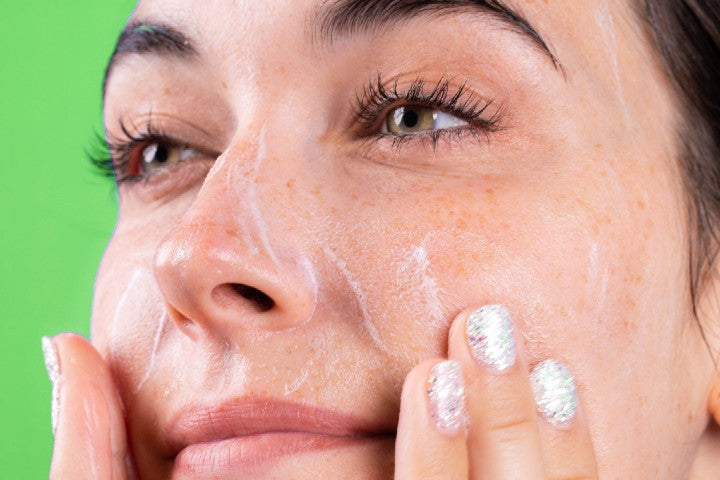
Ugh, hormonal acne. Red, painful, particularly pesky pimples – you know the ones. Worst of all, they always seem to have a habit of showing up at the worst time. Usually before a long-awaited vacation, first-date or BFF’s wedding. Weren’t you told you’d shake off acne after your teen years? Unfortunately, not everybody does.
If you’re suffering from hormonal acne, you could be looking at the next 20 years with persistent breakouts. Don’t like that thought? Don’t worry. There are some things you can do to deal with hormonal acne and manage those breakouts.
In this article, we answer your most pressing questions about hormonal acne.
HOW CAN YOU TELL IF IT'S HORMONAL ACNE?
Before you can treat hormonal acne (or any kind of acne, for that matter), you need to distinguish which type of acne it is.
Hormonal acne occurs right before getting your period.
“The reason that this happens is that hormonal fluctuations stimulate your oil glands to go into overdrive,” says Joshua Zeichner, the director of clinical and cosmetic dermatology at Mt. Sinai Hospital in NYC.
He explains, “More oil means more shine on the skin, more blockages of your pores, and more food to feed acne, causing bacteria on the skin.”
You know you’re getting hormonal acne if pimples pop up around your period, are located on your chin and jawline, and no longer in your teen years.
WHAT EXACTLY IS HORMONAL ACNE?
Dermatologist Dr Justine Kluk enlightens us:
“Hormones are chemical messengers that act on target bodily tissues,” she explains. “Hormones known as androgens, for example testosterone, increase sebum production and cause thickening of the skin. These can contribute to pore-blocking and can trigger breakouts.”
That’s why you may notice more pimples cropping up close to your period.
While hormonal acne tends to take the form of cysts, it can also take shape as blackheads and whiteheads.
Stress can also be a contributor to hormonal breakouts. That’s because cortisol – the stress hormone – affects hormones.
HOW CAN YOU TREAT HORMONAL ACNE?
There’s no real way of preventing hormonal breakouts apart from reducing your stress levels. However, there are ways you can tackle these pesky pimples.
The Pill
If your flareups are getting you down, a great way to manage them is birth control.
“These oral contraceptives are composed of ethinyl estradiol plus either the progestin norgestimate, norethindrone acetate, or drospirenone, which work together to alter levels and activity of hormones that can trigger acne,” says Marina Peredo, board-certified dermatologist.
Dr Anjali Mahto clarifies further, “It works because oestrogen in the contraceptive pill reduces sebum and androgen production. Data suggests that it can take up to three months to see skin benefits from the contraceptive pill and certain pills, such as Yasmin and Dianette, are seen as more ‘skin-friendly’.”
If you’re not already on the pill, consult with your doctor first.
CBD Cleanser
If you haven’t heard, CBD oil (cannabinol) is a powerful anti-inflammatory ingredient, making it ideal for calming painful pimples. CBD’s also packed with vitamins A, D, and E and essential fatty acids to cleanse and rejuvenate the complexion. Let’s not forget CBD oil’s unique ability to normalize high levels of acne-causing agents in skin cells.
Experts like Zeichner recommend treating acne with products that contain either salicylic acid or benzoyl peroxide.
“Products with salicylic acid work by removing excess oil from the skin and helping to exfoliate dead cells from the skin surface, and this ultimately keeps your pores clear,” he informs.
It’s a good job Truly’s CBD Facial Cleanser contains salicylic aid too! This formula uses the power of CBD oil and salicylic acid to clear acne, congested pores, and blackhead-causing buildup for smooth, acne-free skin.
Retinoids
Retinoids can ease a number of skincare issues, including acne.
“Retinoids are vitamin A-based products that essentially stop skin cells from becoming sticky,” says Dr Mahto. “In other words, they reduce the blockage of pores and prevent things like blackheads from forming.”
Dr Peredo notes, “They are the preferred avenue for long-term treatment because of the limited severe side effects and are known for preventing new acne in the long term.”
Still, you should gradually build up your retinoids usage as they can cause skin irritation and redness. Try to alternate using a retinoid cream two to three times a week.
Try Truly’s Purple Rain Serum for a less concentrated retinoid. This formula combines retinol with glycolic acid to boost cell turnover rate and unclog pores. It’s ideal for daily use.
Isotretinoin
If the above options aren’t working at getting rid of your hormonal acne, you could always give Isotretinoin a try. Also known as Accutane, Isotretinoin is a form of oral vitamin A that reduces oil production in your skin, lessening breakouts.
“It’s used in the treatment of severe acne, and is usually given after other acne medicines or antibiotics have been tried without success,” explains Peredo. “Due to its strength and potential side effects, however, this treatment isn’t typically considered as a first solution, but it can be quite effective when other remedies aren’t working.”
You will need to visit your doctor to get a prescription for Isotretinoin. And you will be asked whether or not you’re pregnant, as it has been shown to cause birth defects.
COULD AN UNDERLYING CONDITION BE CAUSING YOUR HORMONAL ACNE?
Even though it’s annoying, hormonal acne is common. Still, it’s worth ruling out underlying conditions that could be causing your flareups – like polycystic ovary syndrome. A condition that affects around 8% of women of reproductive age.
“Acne is a possible manifestation in women with PCOS and between 19% to 37% of women with moderate to severe acne meet the criteria for the condition,” says Dr Kluk.
“The suspicion should be raised if acne originates or persists into adulthood and is resistant to conventional therapies,” she adds.
Hormonal acne is frustrating, but you don’t have to put up with it. Try out the treatments recommended in this post, or visit your dermatologist to find a solution.







